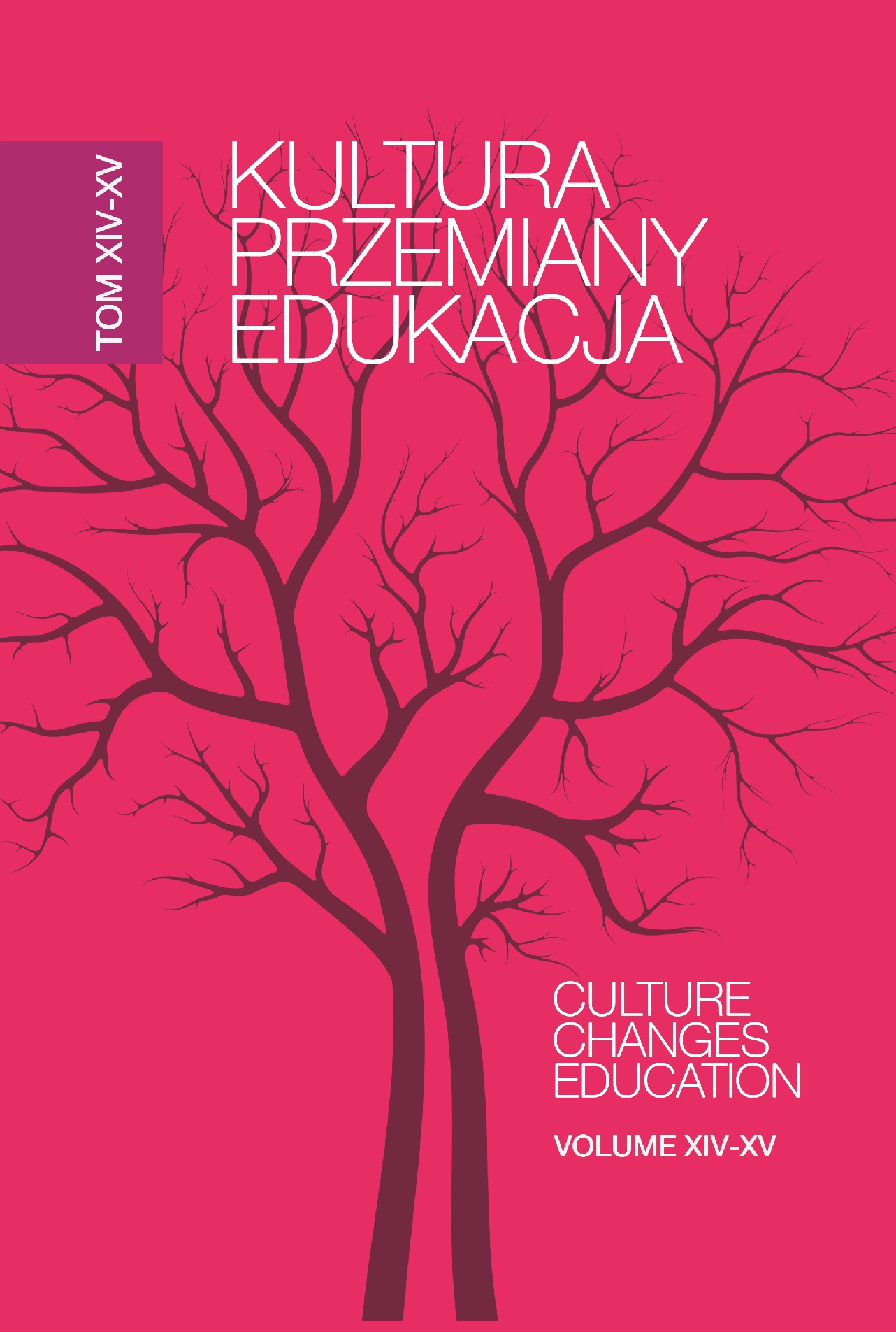Rola rodziny w rozwoju dziecka
DOI:
https://doi.org/10.15584/kpe.2024.9Słowa kluczowe:
rola rodziny, rozwój dziecka, rodzina dysfunkcyjna, kształtowanie osobowości dzieckaAbstrakt
W artykule podjęto próbę ukazania roli rodziny w rozwoju dziecka. Jest ona najważniejszym środowiskiem z perspektywy kształtowania osobowości. Rodzice pełnią rolę nauczycieli, których zachowania zapisują się trwale w umyśle dziecka. Będzie ono z określonych wzorów czerpać przez całe życie. Kluczowe jest zapewnienie dziecku poczucia bezpieczeństwa, dzięki czemu jego rozwój będzie przebiegał prawidłowo. Istnieje wiele definicji pojęcia „rodzina”, co wskazuje na jej wieloaspektowość w optyce wielu dyscyplin naukowych. Niewątpliwie w rodzinie dziecko zaspokaja różnorodne swoje potrzeby, np. emocjonalne, społeczne. Potrzeby biologiczne, które były na pierwszym miejscu są wpisane w dobrobyt współczesnego społeczeństwa. Czerpie ze wszystkiego, co dają mu bliscy. Rodzinie przypisuje się także wiele ról, funkcji i zadań. Jest to przede wszystkim środowisko narodzin, rozwoju i wychowania człowieka. Kontekstem dla rozważań stała się rodzina dysfunkcyjna. To w niej należy upatrywać zagrożeń dla prawidłowego rozwoju i funkcjonowania dziecka. Zwrócono uwagę zarówno na cechy rodziny prawidłowej, jak i na cechy rodziny dysfunkcyjnej. W pierwszej dziecko wychowywane jest w poczuciu bezpieczeństwa i miłości ze strony rodziców i całej rodziny. W drugim musi dostosować się do problemów rodziny, które stoją na piedestale, wykształcić cechy, które zapewnią mu przetrwanie. W rodzinie dysfunkcyjnej potrzeby dzieci nie są na pierwszym miejscu, nie są spełniane w odpowiednim stopniu. Powodem deprywacji potrzeb są dysfunkcje, np. uzależnienie członków rodziny od alkoholu, narkotyków bądź też stosowanie przemocy. Występowanie trudnych zjawisk wpływa znacząco na pozycję dziecka. Rodzina nie jest w stanie urzeczywistnić przypisywanych jej ról, zadań i funkcji z uwagi na występujące w niej zaburzenia. W związku z tym, wychowanie w rodzinie prawidłowej i nieprawidłowej (dysfunkcyjnej) posiada swoje konsekwencje w przyszłości, kiedy dziecko staje się dorosłym człowiekiem.
Downloads
Bibliografia
Bereźnicka M., Wychowanie dziecka we współczesnej rodzinie, Kraków 2014.
Cudak H., Cudak S., Społeczne i emocjonalne funkcjonowanie współczesnej rodziny, Warszawa 2020.
Dybowska E., Transformacja pojęcia rodziny we współczesnym dyskursie interdyscyplinarnym, [w:] red. Pedagogika rodziny na początku XXI wieków świetle pojęć i terminów, B. Sieradzka – Baziur, Kraków 2018.
Frączek Z., Dysfunkcjonalność i problemy współczesnej polskiej rodziny w świetle danych statystycznych i wspierających działań państwa, „Kultura – Przemiany – Edukacja”, 2021, t. IX.
Harwas – Napierała B., Bakiera L. (red.), Oblicza współczesnej rodziny, Poznań 2018.
Harwas-Napierała B., Znaczenie przemian współczesnej rodziny dla rozwoju człowieka, „Psychologia Rozwojowa” 2008, t. 13, Nr 3.
Janicka I., Liberska H. (red.), Psychologia rodziny, Warszawa 2015.
Matyjas B., Pedagogika rodziny. Aktualna problematyka i nowe obszary badawcze, „Studia z teorii wychowania” 2020, Tom XI, Nr 2 (31).
Poleszak W. P., Wychowawcza funkcja rodziny, Lublin 2018.
Pujer K. (red.), Współczesna rodzina Szanse – zagrożenia – Kierunki Przemian, Wrocław 2016.
Sigda K., Matusiak R., Dysfunkcjonalność współczesnej rodziny skutkiem różnego rodzaju uzależnień, „Społeczeństwo i Rodzina” 2016, Nr 46/1.
Smyła J., Rodzina w kalejdoskopie współczesnych przemian, ,,Wychowanie w rodzinie” 2022, t. XXVI, Nr 1.
Syndrom DDD – przyczyny, symptomy, terapia dorosłego dziecka z rodziny dysfunkcyjnej, www.damian.pl, z dnia 08.09.2023 r.
Tuchowska M., Znaczenie rodziny w życiu młodego człowieka, https://portal.librus.pl/rodzina/artykuly/znaczenie-rodziny-w-zyciu-mlodego-człowieka, z dnia 22.07.2023 r.
Ustawa z dnia 12 marca 2004 r. o pomocy społecznej, art. 6 pkt 14.
Wloka A., Rodzina dysfunkcjonalna w perspektywie psychologiczno – socjologicznej, [w:] Kiedy myślimy Rodzina..., red. M. Duda, K. Kutek-Sładek, Kraków 2016.
Ziółkowska A., Gronkiewicz A. (red.), Rodzina w prawie administracyjnym, Katowice 2015.
Pobrania
Opublikowane
Jak cytować
Numer
Dział
Licencja
Prawa autorskie (c) 2024 KULTURA – PRZEMIANY – EDUKACJA

Utwór dostępny jest na licencji Creative Commons Uznanie autorstwa – Bez utworów zależnych 4.0 Międzynarodowe.


